
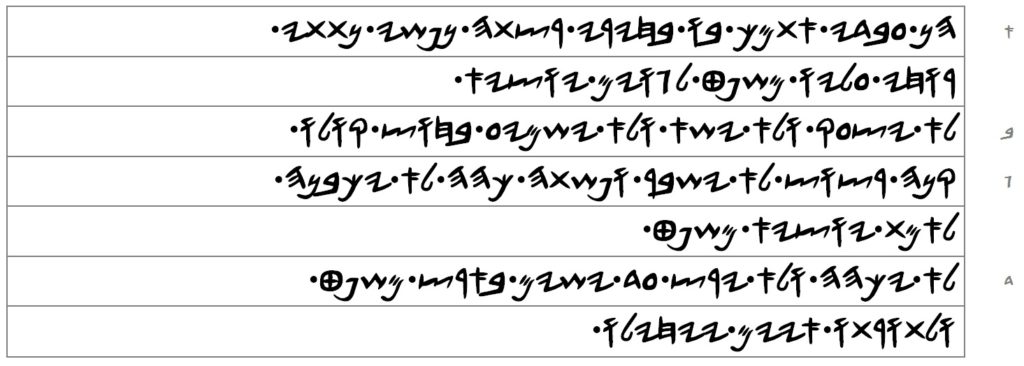
[1] Behold my servant! I will grasp hold in him. My chosen man. My soul has accepted. I have put my force upon him. Judgment for the peoples will he bring forth.
[2] not will he cry out, and not will he lift up, and not will he cause to be heard in the streets his voice
[3] A bruised reed he will not break, and smoking flax he will not extinguish it; for the truth will he bring out judgment.
[4] not will he grow weak, and not will he crush, until he puts judgment in the earth, and for his Thorah will islands hope.
COMMENTARY OF YASHAI-YA’OH 42:1-4
[Verse 1] Because the satanic Greek New Testament gospel of Matthew 12:17-21 quotes the above prophecy from the Greek version of Yashai-Ya’oh 42:1-4 as having been fulfilled by the idol god Jesus Christ, the whole world has been led to believe it is about him. Is it? I’m going to need you to pay careful attention and to think rationally here.
[Verse 2] This prophecy says the “servant” will not be out in the streets lifting up his voice which means he will not do any outdoor public speaking. But Jesus Christ, both the historical figure and the mythical figure created by Paul the apostate, was out in the streets preaching. Back in those days that was the only way you could get your message across to a wide audience. You had to be outside in the streets raising your voice so crowds could hear you. Christian commentaries see this problem and try their best to convince you that the verse means Christ wont be a clamorous or self-asserting loud mouth. But that is not what this prophecy says. This prophecy says the servant will not be heard in the streets at all.
Strike one.
[Verse 3] The prophecy says the servant will not break a bruised reed. According to Christian commentaries this prophecy means Jesus Christ will deal gently with the weak, the lowly, and the dejected. But the last time the prophet Yashai-Ya’oh used the expression “bruised reed” he was not talking about depressed and lowly people. He was talking about the danger of our nation putting their trust in Matsraym (Egypt) to help them fight off the Assyrians (read Yashai-Ya’oh 36:6).
The prophecy also says the servant will not quench a flax that is smoking. Once again, Christian commentaries jump to the conclusion that this is a reference to feeble people and how Jesus Christ will handle them with tender loving care. But the word “flax” brings the reader immediately back to Matstraym again since the word’s only previous usage in scripture is in reference to Matsraym (read Exodus 9:31). The prophet uses the word one more time when he is talking about the destruction of a foreign nation hostile to the people of Ya’oh-shar-al (read Yashai-Ya’oh 43:17).
Notice that the passive participle ratsots (רצוץ) “bruised” used in verse 3 is from the same verb ratsats (רץץ) “crush” used in verse 4. You cannot see this from the 1611 Queen James Virus English translation. You have to look at the source language in order to see this. When you do you will see that the prophecy is hardly saying the servant will not crush. It is saying he WILL DO this after he accomplishes the task that is given to him. This clearly has nothing to do with how feeble people will be treated by Jesus Christ.
Strike two.
[Verse 4] This prophecy says the Thorah (instruction, law) of the servant is intended for a people living in islands who “hope” (causative not intensive stem) for it. This is a disaster for Christian interpretation. Christian commentators want this verse to mean that the servant comes with a mission to convert heathens living in far off distant places and how these heathens will be in earnest expectation. The Greek LXX version, the one given in Greek Matthew 12:21, changes the words to: “In his name shall the Gentiles hope.” But the verse does not say this. It says a people living in “islands” will cause his instruction to be hoped for. Jesus Christ did not target his message to anyone living on nameless islands, and you cannot magically turn the word “islands” to mean the whole world at large.
Strike three. You’re out.
It must also be mentioned that Jerome tells us that the copy of the Hebrew Matthew he was able to examine in person in the 5th century did not follow the Greek LXX in any of its quotations of the prophets. Yet the Hebrew Matthew of Shem-Tob for chapter 12:17-21 follows the LXX. This proves it was not part of the original Hebrew Matthew. Either Shem-Tob, or a previous editor, added it to make the Hebrew Matthew agree with the standard Greek and Latin editions of the Matthew gospel. This addition helped create a straw man so the work could be debunked for the reasons stated above. The prophecy we are talking about has nothing to do with Jesus Christ, but the Nicolaitanes-Nazarene movement led by Paul the apostate said it did. That is why it was included in the Greek Matthew published at Antioch, the epicenter of the abomination movement, whereas it was not cited in the original Hebrew Matthew written by the eye-witness apostle of that name from Galilee.
The servant is a man but not a man who lived in the 1st century CE. The servant is the same man mentioned in the previous chapter of Yashai-Ya’oh 41:2 and 25. He is a man from the north who proclaims the true name YA’OH from the islands of the far east where the sun rises. Once he brings the truth out (and he does this without standing and yelling on street corners dressed like a space cowboy or a glass of the purple stuff), and once he has set judgment in the “islands,” then it will be time to crush the bruised reed. The bruised/useless reed is a nation that oppresses the people Ya’oh-shar-al and the people of Ya’oh-shar-al continue to lean on it despite being oppressed by that nation. That nation is the United States of America. This is the prophetic Mastraym mashnah (the second Egypt) that the prophets speak of repeatedly.
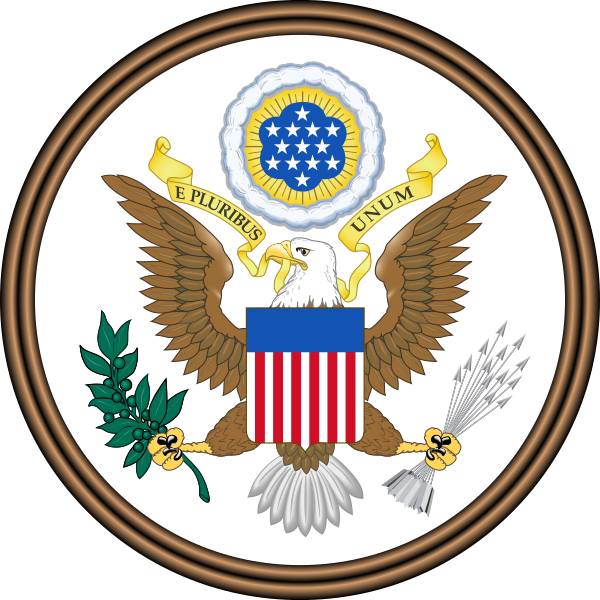
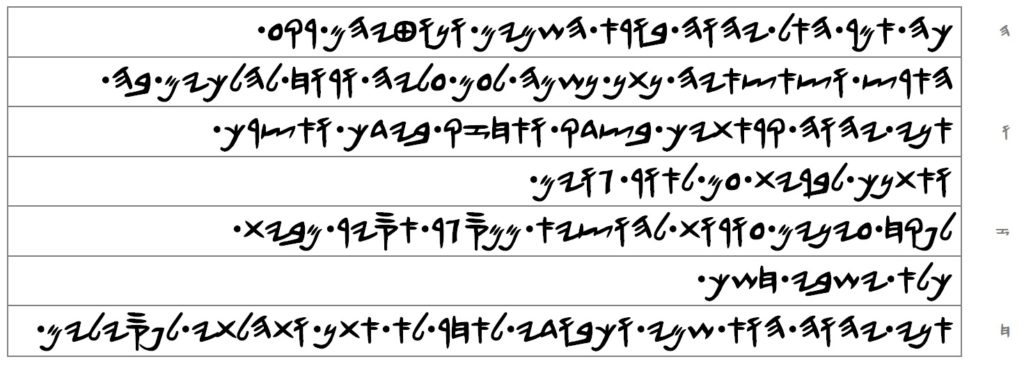
[5] Thus says the Higher Power, YA’OH, the one who created the heavens and the one who stretched them out; the one who spread forth the earth, and that which issues out of it, the one who gives breath to the people upon it, and wind to the ones walking on it.
[6] I YA’OH have called you in righteousness, and I will take hold of your hand, and I will keep you, and I will give you for a covenant of the nation, for a light to the peoples.
[7] to open the eyes of the blind, to cause to bring forth from the prison the prisoner, from the house of confinement those sitting in darkness.
[8] I am YA’OH, that is my name, and my glory to another not will I give, nor my praise to idols.
COMMENTARY OF YASHAI-YA’OH 42:5-8
[Verse 5] YA’OH, the creator of heaven and earth, is the only true Higher Power there is.
[Verse 6] The servant is a man called in righteousness by YA’OH to be for a covenant of the nation and a light to those people (not to heathens although heathens who fear YA’OH are not excluded from his light). The expression occurs again in Yashai-Ya’oh 49:8 and the meaning is the same, but how is a man to be given for a covenant to his people? A covenant is an oath sworn by one party to another party, or an oath whereby two parties commit to specified terms and obligations and penalties should those terms and obligations not be met by either party. Thus, a covenant is the beginning of a relationship where two parties become joined together. The servant of YA’OH appears here as being himself the nation’s covenant and the people’s light, inasmuch as in his own person he embodies the oath of a renewed relationship between YA’OH and His people Ya’oh-shar-al, and he becomes in his own person the light which illumines the dark world. This is more than could be affirmed of previous prophets, even of Yashai-Ya’oh or Yaram-Ya’oh. Hence the servant must be that one person who throws into the shade and eclipses not only all that prophets after Mashah did before the servant comes, but all that ever had been done by priests or kings of Ya’oh-shar-al.
An unprejudiced commentator must admit that the servant of YA’OH described here is he in whom and through whom YA’OH concludes a covenant with His people that effectively revives and fully restores the first covenant that was broken; namely, the covenant promised in Yashai-Ya’oh 54:10; 61:8; Yaram-Ya’oh 31:31-34; and Ya’oh-khazak-al (Ezekiel) 16:60. Just as the first covenant was made in the wilderness after an Exodus (1497 BCE), the servant is a covenant of the nation to be made in a second wilderness after an Exodus in these latter days (2023 CE). That latter day Exodus is happening now.
[Verse 7] The servant is also a man who teaches. He opens the eyes of the blind to see the truth, and he causes the prisoner to exit his prison, meaning he organizes an Exodus from captivity to the wilderness. Since this cannot be done without also making the source language known so the scriptures can be clearly understood, it is evident that the servant will restore and teach the pure language and fulfill Tsapan-Ya’oh (Zephaniah) 3:9.
[Verse 8] This verse is all about the holy name. The prisoner sitting in darkness in verse 7 is the people of Ya’oh-shar-al in the lands of their captivity in the west where they have been indoctrinated by false religions and have forgotten their Maker’s true name. The servant is a man who opens their eyes so they may remember the true name of their Maker and how there is no one else but Him.
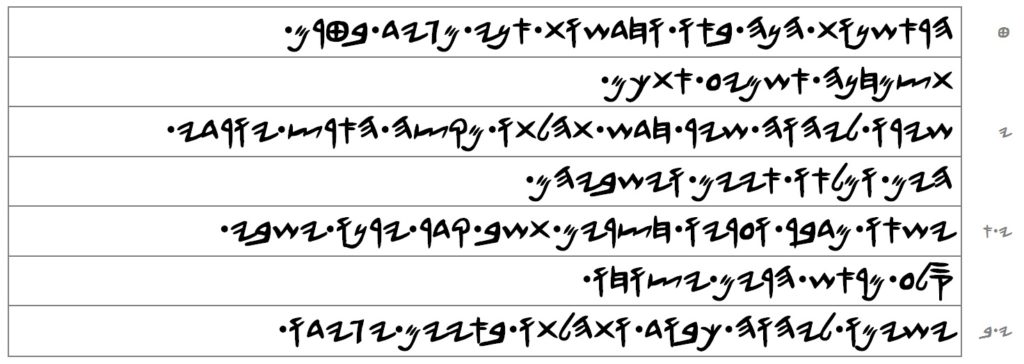
[9] the former things, behold, they have come to pass; and new things I am declaring, before they spring up I will tell you of them.
[10] Sing unto YA’OH a new song, His praises from the end of the earth. You all going down the sea, and the fullness of it, islands and the inhabitants of them.
[11] They will be exalted, the wilderness and its cities, villages that KADAR will inhabit. They will sing, those dwellers of the rock, from the tops of the mountains will they shout.
[12] They will give to YA’OH glory, and His praises in the islands will they declare.
COMMENTARY OF YASHAI-YA’OH 42:9-12
[Verse 9] The former things that have already happened are the curses that put Ya’oh-shar-al in the prison of a strange land and in the house of confinement where they worshiped a strange god of wood and stone called Jesus Christ. The new things YA’OH is about to declare are those things that are about to happen now that the “prisoner” has eyes to see and knows what he must do and where he must go. YA’OH is telling us what will happen before it happens so we may know it is Him.
[Verse 10] The prisoner is not brought out of the prison house to sing a new song unto YA’OH in the same land of his punishment (See Mazmor 137:1-9). Rather, the former prisoner is told by the prophet that he must go to the end of the earth and sing YA’OH’s praises there. He must leave the lands of his captors and go to the islands of the sea at the end of the earth. The servant is a man who will set judgment in the earth by establishing a commandment keeping zone in the wilderness where the tabernacle of YA’OH will be built and where all of His laws will be kept by the remnant who reside therein.
[Verse 11] The islands at the end of the earth where the former prisoner is headed in his Exodus is the second wilderness that the scriptures speak of. Because the former prisoner is “black” he is called Kadar (קדר, which means “black skin,” “black skinned man”) coming to inhabit villages of the wilderness in the islands of the sea at the end of earth. And there are mountains there on those islands in the east. The former prisoner, a black man, will congregate at the tops of these mountains in the second wilderness and he will sing and shout there. It is happening now.


[Verse 12] They will praise YA’OH and give glory to His name in the islands at the end of the earth. These islands are the Philippine islands from where the name YA’OH is being proclaimed by a ravenous bird. That is where the wilderness is. When the remnant of Ya’oh-shar-al comes out together in their Exodus and congregate in these islands and shout and praise the name of their Maker, the name they had forgotten, from the tops of the mountains the following is what will happen next.
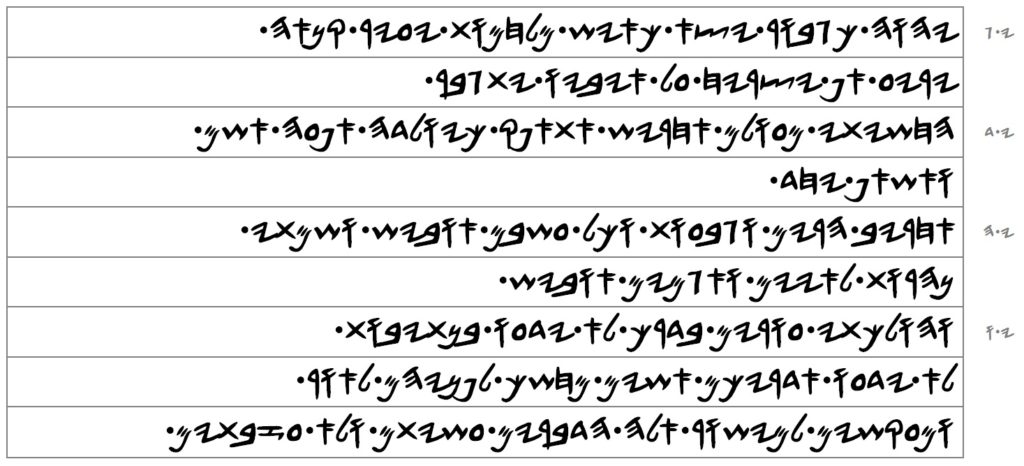
[13] YA’OH cha-gabor yats’ cha-aysh malkhamoth yai’ayr kan’ah yaray’ai ap yatsraykh ghal aybay’o yatha-gabar
YA’OH, like a mighty man will go forth! Like a man of wars He will stir up jealousy. He will cry out! Indeed, He will roar! Upon His enemies will He prevail Himself!
[14] hakhshaythay ma-gholam akhraysh atha’apak cha-yoladah apaih asham wA-ash’ap yakhad
I have kept quiet from old. I am remaining still. I am restraining myself. Like a woman in labor pain will I suddenly bellow out. I will exhale hard and I will inhale hard, together.
[15] I will make waste mountains and high hills, and all their grass will I cause to dry up. And I will make rivers for islands, and the pools of water will I cause to dry up.
[16] And I will cause the blind to walk by a road they did not know, in paths they did not know will I lead them. I will put darkness before them for light, and crooked things for straight. These things I have done for them and not have I forsaken them.
COMMENTARY OF YASHAI-YA’OH 42:13-16
[Verse 13] This is a threat and not an empty one. After YA’OH has gathered His remnant to the second wilderness He is going to unleash devastation upon this world. These will be the pala’oth (wonder) years lasting for a time, times, and a half (Danay’al 12:6-7) when the remnant of Ya’oh-shar-al will be sheltered from the storms in the second wilderness where their kingdom will be established.
[Verse 14] Those who do not believe there is a Higher Power have had reason for not believing in His existence. YA’OH has been keeping Himself quiet and still. He has been refraining Himself, and allowing people to believe in the foolishness that He doesn’t exist. All of that is about to change abruptly and violently once He has finished gathering His remnant to the second wilderness. Mass destruction and death will come from heaven above and from earth beneath.
[Verse 15] The whole description is both symbolic and literal. The physical destruction of the world will bring about an inversion to the established order of things. Literal mountains and hills, and all their grass, will be wasted, and also mountains, hills, and grass symbolizing nations and the peoples in them will be wasted. Literal rivers and pools of water will be dried up and turned into islands, and also rivers and pools symbolizing nation states will dry up and become dry wastelands. This verse denotes the utter desolation that YA’OH is going to bring upon the natural world in His anger which will desolate His enemies, the enemies of His people, at the same time.
[Verse 16] The blind are the people of Ya’oh-shar-al who make up the remnant and who make an Exodus from the land of their captivity in the land of pyramids in the New World. They are leaving behind the only world they know and launching out blindly into a world they do not know. YA’OH will take them by a road and by a path they have never traversed before, but He will make darkness and uncertainty to become light and certainty before them. The maikashaym (‘crooked things’) to made straight are the curses OMPP experienced in captivity the New World. The curses will not follow the remnant where they are going, only blessings will pursue them from now on. YA’OH has not forsaken them.
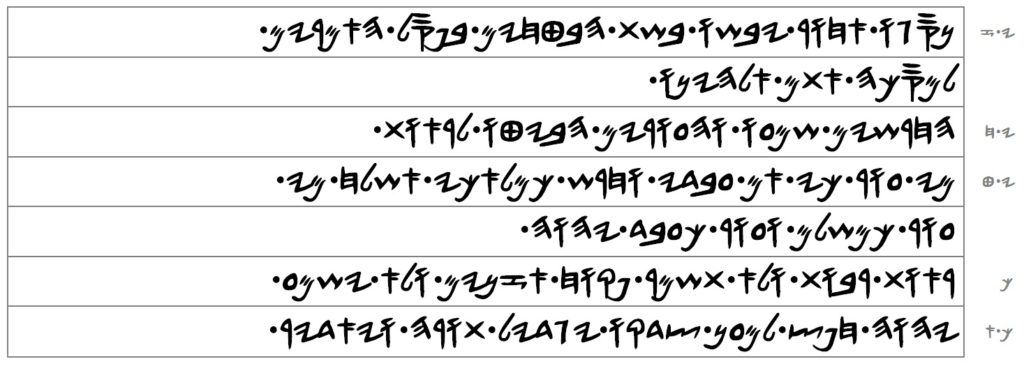
[17] They were turned back, they will be ashamed shamefully, the ones trusting in the graven image, the one saying to the molten image: You are our god.
[18] The ones deaf, hear! The ones blind, look to see!
[19] Who is blind if not my servant, and deaf like my messenger I will send? Who is blind as the one caused to be perfect, and blind like the servant of YA’OH?
[20] Seeing many, but not observing. Opening ears, but not hearing.
[21] YA’OH is delighted on account of his righteousness. He will magnify Thorah, and he will make it honorable.
COMMENTARY OF YASHAI-YA’OH 42:17-21
[Verse 17] The ones trusting in the graven image and the molten image are the ones trusting in the idol god Jesus Christ which is the heathen religion that claims the vast majority of OMPP. They will be ashamed when they see the remnant that was extracted from them, and have denounced the idol, become a powerful and blessed people.
[Verse 18] A contrast is made between the ones deaf and blind in this verse versus the servant in the next verse. The ones deaf and blind in verse 18 are called to repent because they blindly and deafly trust in a god who cannot save them. They are called to hear and to look to see their folly, whereas the servant in the following verse is commended for being blind and for being deaf.
[Verse 19] How does a blind servant who is also a deaf messenger sent by YA’OH do his work effectually? Because he sees with his eyes but he is blind to unrighteousness. He hears with his ears but his ears are deaf to wickedness, making him the perfect servant of YA’OH. The people in verses 17-18 have the wrong master and are condemned for being deaf and blind. But the servant is a puppet on a different string, blind and deaf too, but because YA’OH is his puppet master he does exactly what YA’OH wants him to do, and therefore he succeeds. He is caused to be perfect because YA’OH is the one holding him by his right hand. YA’OH is his eyes and his ears. The servant of YA’OH here described in this chapter can only be the same ravenous bird of Yashai-Ya’oh 46:11.
[Verse 20] The servant does have eyes to see, but his vision is tunnel vision. He does not have time to see and to observe things that are contrary and adversarial to the will of his master. He has opened ears too, but his hearing is tunnel hearing. He does not have time to listen and to hear anything that is contrary and adversarial to the will of his master. His focus is the will of YA’OH. Anything conflicting with this is ignored and dismissed by him.
[Verse 21] YA’OH is delighted in His servant for the above reasons, and also because the servant will magnify the Thorah of YA’OH which He gave to us by the hand of Mashah. One way you magnify the Thorah is by recovering and setting the manuscripts back in proper order and by purging them of all the mistakes introduced by the hands of heathen copyists. Mistakes like the one in the Masoretic manuscript of Genesis 20:13 where the perfect tense verb is written הִתְעוּ (“they caused me to wander”) in the 3rd person common plural, when this is most definitely a copy error and should be התעה (“he caused me to wander”) in the 3rd person masculine singular. There were not Gods (plural!) who caused Abrahm to leave his homeland. It was the one Higher Power named YA’OH who caused him to leave. This mistake, and others like it, are corrected in the Thorah written by the servant.
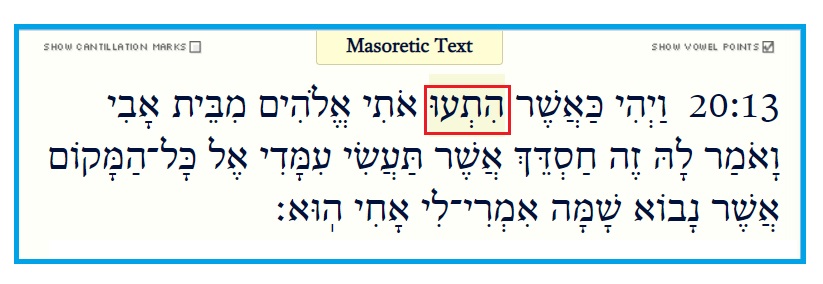
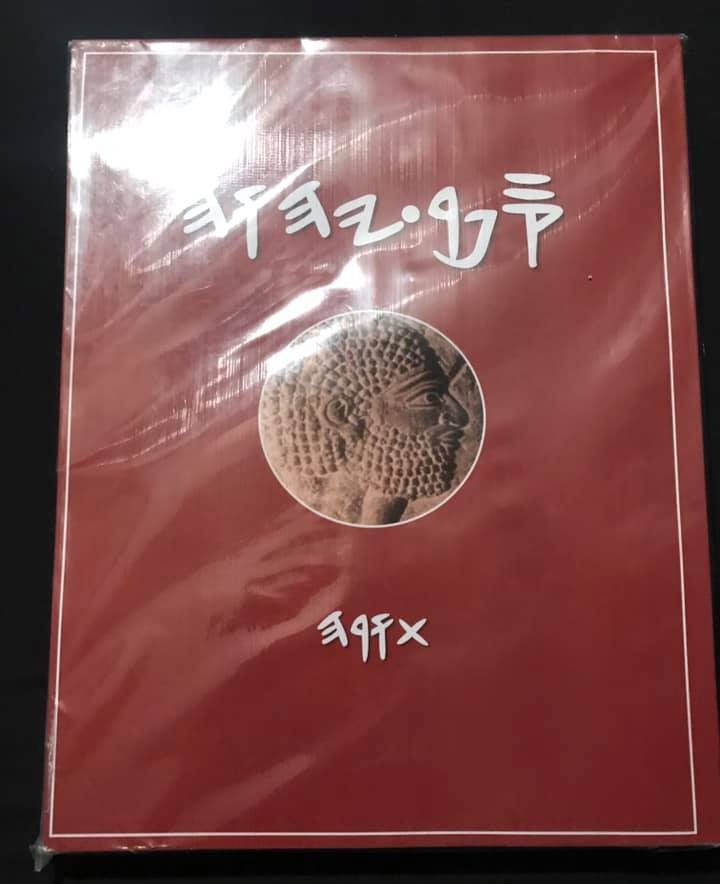
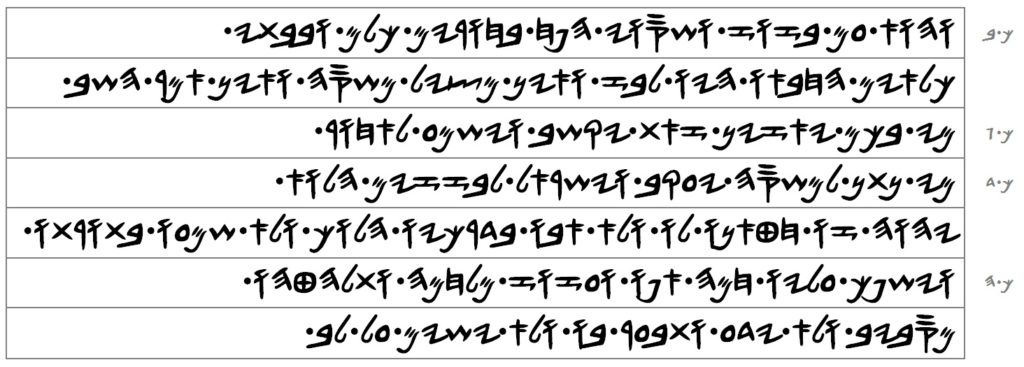
[22] And it is a nation robbed and spoiled, snared in pits are they all, and in the houses of prisons are they hid. They are for prey, and there is none to deliver; a spoil and there is none saying: Be restored.
[23] Who among you will give ear to this, will hearken and will listen for afterwards?
[24] Who gave to the spoiler, Ya’oh-ghakab, and Ya’oh-shar-al to robbers? Was it not YA’OH, the one they sinned to Him? For not will they go in His ways walking, and not did they listen to His Thorah.
[25] And He poured out upon him the fury of His wrath, and the strength of war, and He set him on fire round about, and not did he know it, and it burned him, and not will he put it upon the heart.
COMMENTARY OF YASHAI-YA’OH 42:22-25
[Verse 22] This verse describes the condition of OMPP, the children of Ya’oh-shar-al, since their arrival in the land of pyramids in the New World by slave ships. There is none to deliver and none saying “be restored” with the exception of that servant who is one of them and who is sent to them by YA’OH. None of their enemies afforded them either real pity or real help in their extremities. This verse is hardly talking about the condition of our people during the Babylonian exile in the 6th century BCE. It is talking about yet another captivity far off and more fatal. There has been no captivity of any people more fatal than the captivity of the people who crossed the Middle Passage during the transatlantic slave trade.
[Verse 23] The question asked in this verse expresses Yashai-Ya’oh the prophet’s wish that when all is said and done at the last there will be some of his people who realize the significance of their condition in the land of the pyramids and their true relation to YA’OH, and prepare themselves for the great deliverance of the Exodus to the second wilderness.
[Verse 24] The oppression and the affliction of the people in the land of the pyramids is not the white man’s doing. It is YA’OH doing it. The white man is just the instrument. There are no elites who call the shots over the people of Ya’oh-shar-al and determine their fate. The one who calls the shots is YA’OH. He is the one who controls the elites not the elites themselves.
[Verse 25] The failure of our people recognize who is ultimately responsible for the horrors they have suffered in the land of the pyramids in the New World means they will never be able to solve the problem. They are pointing the finger in the wrong direction and blaming the wrong people. They do not have white men to blame, nor even themselves for their inability to unify. The one preventing them being able to unify, the one fighting against them and burning them is YA’OH, but until they put this to heart they will never know the reason why He is against them and why they can’t do anything to heal themselves. The servant YA’OH sends will make the remnant to see why and make them know how the problem is to be solved.
It was YA’OH who destroyed our nation in 70 CE by sending the Roman legions against us. It was YA’OH who made us wander among the heathens in Africa always fearful until we reached West Africa and became assimilated and enslaved there. It was YA’OH who made the West African elite dump us, their foreign slaves not their own people, onto the market during the transatlantic slave trade which caused us to be brought by ships en masse to the land of pyramids in the New World. It was YA’OH who afflicted and oppressed us in the New World over the past 500 years. The only way out of His wrath, the only way to escape His fury, is by listening to the servant He has sent to be a covenant of the nation. The servant is the voice of the one crying in the second wilderness (Yashai-Ya’oh 40:3).
I am not telling you what I have figured out. I am telling you what He has taught me and told me to tell you.
His name is YA’OH
Always has been. Always will be.
#EXODUS2023
1.15.7252 (April 5, 2023)
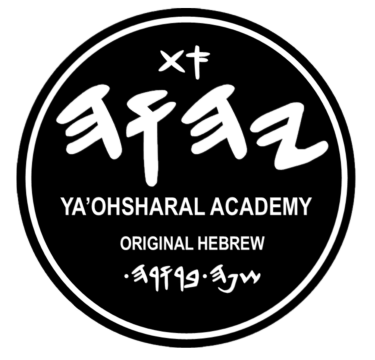
SHALOM MABAYN GHAYT. I appreciate the lesson AKH .” Damian Marley said it best am I getting wiser or am I just getting tall”. I’m saying that to you, to let you know how clearly things are manifesting back to me, your PARAY of your labor is not being wasted with me AKH. CHAL CHABOD LA YA`OH.
HALALO YA OH I thank YA OH for u AKH , I’m glad I’m not sleep no mo